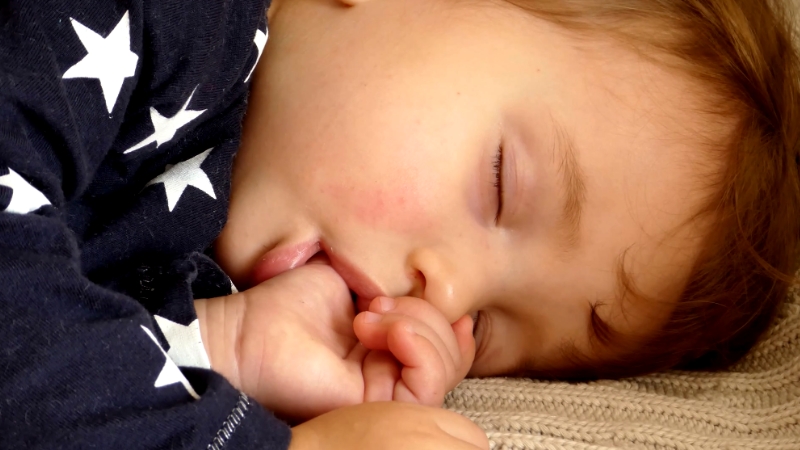As parents, we are often overwhelmed by numerous concerns, from daily nutrition to developmental milestones. Among these concerns, sleep patterns emerge as a pressing matter, especially when our babies reach around 7 months of age. Welcome to our comprehensive guide on a 7-month-old’s sleep schedule. This blog will uncover valuable insights into your baby’s sleep needs, typical patterns, and how you can help your baby sleep better.
The Importance of Sleep at This Age

Why is sleep so important for a 7-month-old? Sleep is vital for your baby’s physical and cognitive development. It allows your little one’s brain to process new experiences and skills learned throughout the day. It is also during sleep that growth hormones are secreted in abundance, aiding in the development of bodily functions.
Moreover, having a consistent sleep schedule aids in establishing a sense of security for your baby. It provides a rhythm and predictability to their day, enabling them to transition between different activities seamlessly. A healthy sleep schedule can also positively affect their mood and behavior during their waking hours.
Research shows that sleep-deprived infants may exhibit slower cognitive development and could potentially impact long-term developmental outcomes. So, investing in your child’s sleep routine is an investment in their future growth and development.
Typical Sleep Patterns at 7 Months

A 7-month-old typically sleeps about 14 hours a day, including naps. However, remember that each baby is unique, and there might be some variance in their sleep patterns. Some babies might sleep for extended hours, while others might have shorter, more frequent sleep cycles.
At this age, babies typically have two to three naps during the day, totaling about 3 to 4 hours. The remaining 10 to 11 hours of sleep usually occur during the night. Most 7-month-olds can sleep through the night without a feeding, but, again, this can vary depending on your baby’s growth and development.
Some babies may experience sleep regression around this age. This is completely normal and usually temporary. It’s just a sign that your baby’s sleep cycle is maturing and shifting towards more adult-like sleep patterns.
Establishing a Bedtime Routine

Consistency is key when establishing a bedtime routine for your 7-month-old. Choose a series of soothing activities, such as a bath, a gentle massage, reading a book, or singing a lullaby, and stick to this routine as closely as possible every night. Over time, these activities will signal to your baby that it’s time to sleep.
Remember, it’s not just about the activities you choose but the order in which you do them. The sequence itself becomes part of the cue that it’s bedtime. Be patient. It can take a while for your baby to adapt to this routine, but the payoff is a baby who falls asleep more easily and sleeps more soundly.
Lastly, aim to put your baby to bed when they are sleepy but still awake. This encourages them to self-soothe and fall asleep on their own – a skill that will be invaluable in the long run. Remember, your goal isn’t just to help your baby fall asleep but also to teach them how to stay asleep.
Establishing a consistent sleep routine for your seven-month-old can greatly contribute to their well-being and overall sleep patterns throughout their first year.
Recommended Hours of Sleep for a 7-Month-Old
On average, a 7-month-old needs around 14 hours of sleep in a 24-hour period. This includes nighttime sleep and naps. At night, most 7-month-olds sleep for about 10-11 hours. During the day, they tend to take two or three naps, usually in the morning and afternoon.
Keep in mind that these are average figures, and some babies may need more or less sleep than others. It’s crucial to pay attention to your baby’s individual needs. Signs that your baby may be getting too little sleep include difficulty settling down for naps and bedtime, waking up frequently at night, and being cranky or hyperactive during the day.
Too much sleep, on the other hand, can also be a concern. If your baby sleeps excessively and shows signs of lethargy or disinterest in their surroundings, it’s essential to consult a healthcare professional.
Napping Schedule: Balancing Daytime Rest with Nighttime Sleep
Balancing your 7-month-old’s daytime rest with nighttime sleep is a delicate task. Typically, your baby should have about 3-4 hours of naptime spread throughout the day. It’s ideal to establish a consistent nap schedule, perhaps one nap in the morning and one in the afternoon.
However, be careful not to let your baby nap too close to their bedtime as it could make it harder for them to fall asleep at night. In general, the last nap of the day should end at least three hours before bedtime.
It’s important to be flexible. There will be days when your baby may refuse to take a nap or might want an extra one. Listen to your baby’s cues and adjust the nap schedule as necessary while still maintaining the overall rhythm of their daily sleep schedule.
Sleep Associations: Encouraging Independent Sleep Skills

Sleep associations are cues that your baby associates with falling asleep. This can be anything from a particular lullaby to the act of being rocked to sleep. While these associations can be helpful in getting your baby to sleep, they can become a problem if your baby can’t fall back asleep without them in the middle of the night.
Therefore, it’s crucial to encourage independent sleep skills from a young age. You can start by putting your baby down to sleep while they’re sleepy but still awake. This can teach them to self-soothe and fall asleep independently.
Remember, fostering independent sleep skills doesn’t mean leaving your baby to cry it out. It simply means providing them with the opportunity to self-soothe. It might take time, and there will likely be setbacks along the way, but the long-term benefits are worth the effort.
Dealing With Changes in Sleep Patterns

Around the age of 7 months, your baby might go through changes in their sleep patterns, also known as sleep regressions. This can be due to various factors such as teething, illness, or developmental milestones. During this time, your baby might wake up more frequently at night or have difficulty settling down.
Remember, these changes are temporary. Maintain consistency in your baby’s sleep routine as much as possible during this period. However, don’t hesitate to provide extra comfort if your baby seems to need it. Extra cuddles or a soothing lullaby can go a long way in helping your baby feel secure and fall back asleep.
Also, ensure your baby is getting plenty of physical activity and stimulation during the day. This can help them sleep more soundly at night. If your baby’s sleep changes persist for a prolonged period or if you’re concerned, don’t hesitate to seek advice from a healthcare professional.
Tips for Soothing Night Wakings

Most 7-month-olds will still wake up at least once during the night. This is completely normal. However, frequent night wakings can disrupt your baby’s sleep. Here are a few tips to soothe your baby and encourage them to fall back asleep:
First, try to wait a few minutes before responding to your baby’s cries. This allows your baby the opportunity to self-soothe and fall back asleep on their own. If your baby continues to cry, go to them and offer comfort but avoid stimulating activities that might fully awaken them.
Second, keep the room dark and quiet. This can help signal to your baby that it’s still nighttime and time to sleep. Consider using a white noise machine or a fan to drown out any potential disruptive noises.
Lastly, if your baby is waking up due to hunger, try to gradually reduce night feedings. Speak with your pediatrician about this transition, and make sure your baby is getting enough to eat during the day to compensate for the reduced night feedings.
Incorporating Relaxing Activities into Your Routine

Incorporating relaxing activities into your 7-month-old’s bedtime routine can help prepare them for sleep. This could be anything from a warm bath to a gentle massage, reading a book, or singing a lullaby. These activities should be calm, comforting, and ideally done in the room where your baby will sleep.
Sensory activities can also be beneficial. Soft lighting, relaxing sounds, or a special blanket can all contribute to creating a peaceful environment conducive to sleep. It’s also a good idea to limit stimulating activities close to bedtime to ensure your baby is calm and ready for sleep.
Remember, consistency is crucial. Engaging in the same activities, in the same order, every night can help signal to your baby that it’s time for bed, making the transition to sleep smoother and easier.
Adjusting Sleep Schedule for Growth Spurts
Around 7 months, babies often go through a growth spurt, which might temporarily disrupt their sleep schedule. During this time, your baby might sleep more than usual, wake up more frequently at night, or have changes in their appetite.
If you notice these changes, try to be flexible with your baby’s sleep schedule. Allow them to sleep a little longer during naps or go to bed earlier if they seem to need it. As always, maintaining a consistent bedtime routine can provide a sense of security during this period of change.
Also, ensure that your baby is getting enough to eat during the day, especially during growth spurts. This can help minimize night wakings due to hunger. Remember, these changes are temporary and your baby should return to their regular sleep schedule once the growth spurt is over.
When and How to Consult a Pediatrician

While most sleep concerns are a normal part of your baby’s development, there are instances when you might need to consult a pediatrician. If your baby consistently struggles to fall asleep or stay asleep, wakes up multiple times during the night, has trouble breathing during sleep, or exhibits extreme lethargy or disinterest during the day, it might be time to seek professional advice.
When consulting a pediatrician, it’s helpful to keep a record of your baby’s sleep patterns. Note down when your baby sleeps, for how long, and any challenges or changes you’ve observed. This information can help your pediatrician understand the situation better and provide more personalized advice.
Remember, your pediatrician is there to support you and your baby’s health. Don’t hesitate to reach out with any concerns, no matter how small they may seem. Early intervention can often make a significant difference in addressing sleep issues.
Final Words

Your 7-month-old’s sleep schedule might seem like a complex puzzle, but with patience, consistency, and a bit of knowledge, you can successfully navigate this journey. Remember that every baby is unique, and what works for one might not work for another. Listen to your baby, trust your instincts, and don’t hesitate to seek professional advice if needed.






